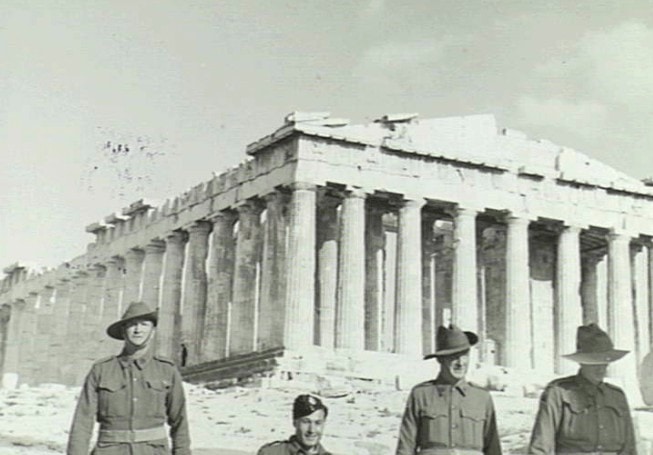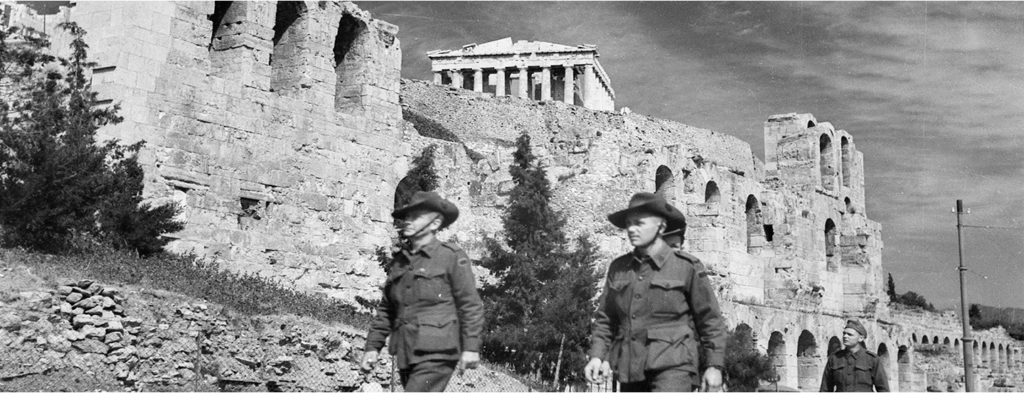
'Oxi Day' marks the beginning of Greek post-WWII migrants arriving in Australia and it also highlights the strong bond between the two countries as Anzac troops defended Greece during the war.
In honour of the these Anzac troops who helped Greece during the conflict, Nick Andriotakis, Secretary of the Joint Committee for the commemoration of the Anzac Battle of Crete and the Greek Campaign released the following statement:
"The annual Oxi Day commemoration on the 28th of October along with Anzac Day is one of the most relevant remembrance days.
Greece gave the Axis Powers their first loss with the defeat of Italy in Epirus and Albania. This war known as the Albanian front began on 28th October 1940 when the Greeks shouted OXI (No) to the Italian ultimatum for passage through Greece. During 1940 Greece and Great Britain were the most tenacious countries that continuously defended themselves for many months against incursions from the Axis powers.
Great Britain was Inspired by Oxi victory and sent commonwealth forces including the second Anzac Corps to defend Greece before the looming Nazi invasion in April 1941. The Second Anzac Corps consisted in approximately equal proportions 34,000 Australians and New Zealanders of which 1044 Anzacs fell and lie in the Greek sacred soil withholds the ancient and modern Greek heroes.

After defeating Italy, Greece felt the combined onslaught of Germany, Bulgaria, Albania and again Italy. The Greek military succumbed to these overwhelming odds but so brave were its soldiers that Hitler in his admiration for their courage and bravery ordered that Greek POWs be released to go back to their families. Throughout the 4 years of Axis occupation, the Greeks never gave up, culminating with the abduction of the German commander on Crete in 1943 and despite the ferocious Nazi reprisals such as mass executions and burning of whole villages.
After WWII a Civil War erupted as a result of the political vacuum that was left giving rise to the Cold War. Many of our parents were children who grew up during WWII and the Civil war. This period of loss of life, destruction, and poverty had a big effect on them. Some of them, their fathers and uncles fought in Epirus and Albania. Some of our parents also were orphaned and more harshly some of them were stolen as the Civil war unfolded.
During WWII Greece lost some 10% of its population or a more chilling 800,000 people from the ravages of war and starvation. During the Civil War, some 158,000 were killed and 1,000,000 temporarily relocated.

Earlier Greek immigrants to Australia left as a result of the Balkan Wars, Greco -Turkish Wars and World War I which destroyed their communities and social fabric. So, after almost a decade of war with some 950,000 people killed, destruction to towns, villages and cities, dislocation of families and the economy in tatters hundreds of thousands of Greeks decided to migrate to many countries including Australia.
Greek Australians are encouraged to look deep enough into their family and community heritage which could contain many of the heroes of Oxi including direct ancestors and others from our heritage communities. We also encourage them to engage with other Australians who maybe are descendants or are connected to the descendants of the 34,000 Anzacs that defended Greece.
Oxi Day is very relevant and many of us, the children and grandchildren of Greek immigrants to Australia are enjoying a fortunate great life but also making a significant contribution with the responsibility to this wonderful country. Our beneficial reality is built upon the sacrifice and the emotional cost paid by our parents who left behind their families and communities in search of a better life.
This emotional cost was ongoing for decades as our parents tried to assimilate into a new country and are part of the human cost paid by the Greek people for the courage and bravery defending the most ancient land and the Greek way of life with liberty and freedom.
The cost to our parents and the benefit for us started from Oxi Day 28th October 1940.
Lest We Forget"
Nick Andriotakis BE (Hons)
Secretary
Joint Committee for the
Commemoration of the
Anzac Battle of Crete & the Greek Campaign
